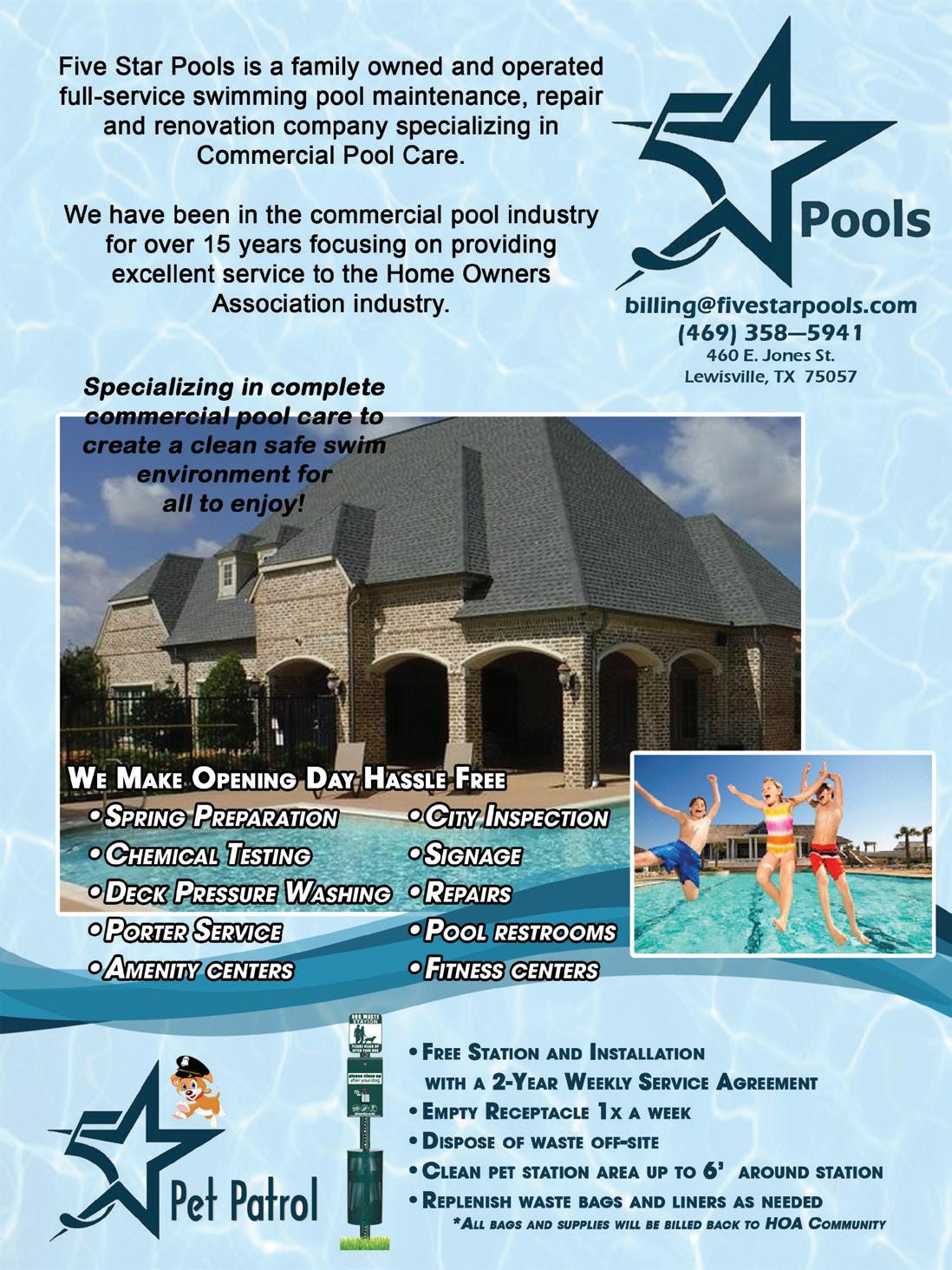
3 minute read
Community Association Living Articles
Community Association Living
(CAI copyright free article)
Your homeowner's association is glad you’ve found a home in the community. The community hopefully has all the amenities you were seeking and you’re settling in nicely. This is the time the association likes to remind new homeowners that common-interest communities create some unique obligations to the community and to other residents within it:
Read and comply with the community’s governing documents. You should have received a package of documents well before you closed on your home. If you didn’t, check the association’s website or ask the manager or a member of the board for copies. Make sure you understand what’s included in them, particularly the rules about pets, parking, your home’s exterior maintenance, architectural guidelines and when you must pay association assessments.
Provide current contact information to association board members or the manager. Make sure they know how to reach you in case of an emergency, and ask them to notify you of association meetings and other important events. If you rent out your home, provide contact information for your tenants also for use in an emergency. Maintain your property according to established standards. The community’s appearance can add value to all the homes within it—including yours—so it’s important to keep landscaping neatly groomed and your home’s exterior well-maintained. Treat association leaders honestly and respectfully. Board members are homeowners—just like you—who have volunteered to give their time and energy freely to govern the community. While you should share your concerns about the community with them, do so in a way that’s constructive, informative and helpful. Attend board meetings and vote in community elections. Board meetings are open to all who wish to sit in and keep up with issues under discussion. The association is a democracy, and your voice and vote can affect important issues. Pay association assessments and other obligations on time. Your regular assessments pay for common-area maintenance, amenities and other shared expenses. If you don’t pay on time, the burden for paying your portion of the association’s bills, like water, electricity and trash removal, falls on your neighbors. Contact a board member or the manager, if you’re having problems, to discuss alternative payment arrangements. Ensure that tenants, visiting relatives and friends adhere to all rules and regulations. If you are leasing your home, you’re liable for maintaining the condition of the home and for the behavior of those who live in it. Make sure to screen tenants thoroughly, and familiarize them with the community’s rules.

Community Association Living
(CAI copyright free article)
All community associations have three things in common.
Membership is mandatory. Buying a home in a community association automatically makes you an association member—by law.
Governing documents are binding. Association governing documents can be compared to contracts. They specify the owners’ obligations (following the rules, paying assessments) and the association’s obligations (maintaining common areas, preserving home values).
You could lose your home if you fail to pay assessments. Associations have a legal right to place a lien on your property if you don’t pay assessments. In Texas, Associations can foreclose on your home when assessments are not paid.
But, take heart! Associations also have three realities they can’t escape. Associations have an obligation to provide three broad categories of service to residents.
• Community services. For example, these can include maintaining a community website, orienting new owners or organizing social activities. Maintenance of amenities are also services provided by Associations.
•
• Governance services. For example, establishing and maintaining design review standards, enforcing rules and recruiting new volunteer leaders.
•
• Business services. For example, competitively bidding maintenance work, investing reserve funds responsibly, developing long-range plans and collecting assessments.
By delivering these services fairly and effectively, community associations not only protect and enhance the value of individual homes, but they provide owners an opportunity to participate in decisions affecting their community and quality of life. And those are realities we can live with.









